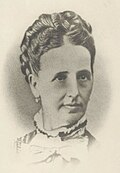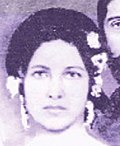| Name | Image | Head of state/President | Dates | Notes |
|---|
| Micaela Josefa Quezada Borjas |  | Dionisio de Herrera | 1824-1827 | (1830-1833) |
| Mercedes Vidaurre Molina |  | Justo Milla | 1827 | |
| María Ambrosia Garin Zepeda |  | Miguel Eusebio Bustamante | 1827 | |
| Joaquina Josefa de Zelaya Vidaurre |  | José Jerónimo Zelaya Fiallos | 1827 | |
| María Josefa Lastiri | | Francisco Morazán | 1827-1829, 1830 | |
| Dolores Lastiri Lozano |  | Diego Vigil | 1828-1829 | Sister for María Josefa Lastiri Lozano |
| Juana Lope |  | Juan Ángel Arias | 1829-1830 | |
| Lucía Lastiri Lozano |  | José Santos Díaz del Valle | 1830-1831 | Sister for María Josefa Lastiri Lozano |
| María Manuela Díaz |  | José Antonio Márquez | 1831-1832 | |
| Teresa Márquez Díaz |  | Joaquín Rivera | 1833-1836 | Daughter for the president José Antonio Márquez |
| Margarita Guillén Chávez |  | José María Martínez Salinas | 1837-1838 | |
| Juana Casco |  | José María Guerrero | 1839 | Nicaraguan |
| Petrona Vásquez Alcántara |  | José María Bustillo | 1835/1839-1839 | |
| Dolores Serafín Gómez |  | Felipe Neri Medina Córdova | 13 - 15 April of 1839 | |
| Mercedes González Herrera |  | José Francisco Zelaya y Ayes | 1838-1840 | |
| Dolores Medina |  | Francisco Ferrera | 1840-1844 | |
| Apolinaria Ayala |  | Felipe Bustillo | 1848 | |
| Josefa Pineda Castejón |  | Juan Lindo | 1848-1852 | |
| Nieves Cabañas Fiallos |  | José Francisco Gómez y Argüelles | 1852-1852 acting | |
| Petronila Barrios Espinoza |  | José Trinidad Cabañas | 1852-1852 | |
| Soledad Gutiérrez Lozano |  | Juan López (general) | 1852-1852 | |
| Severiana Arbizú |  | José Santiago Bueso Soto | 1855-1855 | |
| Ana Arbizú y Flores |  | José Santos Guardiola | 1855-1862 | |
| María Ana Milla Castejón |  | Victoriano Castellanos Cortés | 1862-1862 | |
| Mariana Milla |  | José María Medina | 1862/1863/1865-1865/1865-1866/1866-1869/1870-1874/1876 | |
| Damiana Gálvez |  | Crescencio Gómez Valladares | 1865-1865 | |
| Nicolasa Avilés |  | Francisco Cruz Castro | 1869-1870 | |
| Jesús Planas Zúñiga |  | Juan Antonio Medina Orellana | 16 - 26 de julio de 1872 | acting first lady |
| Francisca Boquín |  | Céleo Arias | 1872-1873 | |
| Luisa Castro Acosta |  | Ponciano Leiva | 1874-76, 1891-1893 | |
| Josefa Dolores Rodezno |  | José María Zelaya Ayes | 1876 | |
| Celestina Mijango [a] |  | Marco Aurelio Soto | 1876-1883 | |
| Teresa Morejón Ferrera |  | Luis Bográn | 1883-1891 | |
| Emma Gutiérrez Lozano |  | Policarpo Bonilla | 1894-1899 | |
| Carmen Alemán Saravia |  | Terencio Sierra | 1899-1903 | |
| Margarita Fiallos Castellanos [b] |  | Juan Ángel Arias Boquín | 1903-1903 | |
| Josefa Matute |  | Manuel Bonilla | 1903-1907 | |
| Purificación Rodríguez Estrada |  | Miguel Oquelí Bustillo | 1907 | |
| Narcisa Romero Portillo |  | Miguel Rafael Dávila Cuéllar | 1907-1911 | |
| Victoria Alvarado Burchard |  | Francisco Bertrand Barahona | 1912-1919 | |
| Gumersinda Inestroza Ocampo |  | Vicente Mejía Colindres | 1919, 1929-1833 | |
| Guillermina Leiva Castro |  | Francisco Bográn Barahona | 1919-1920 | |
| Ana Lagos Laínez |  | Rafael López Gutiérrez | 1920-1924 | |
| Francisca Fiallos Inestroza |  | Vicente Tosta Carrasco | 1924-1925 | |
| María Leiva Castro |  | Miguel Paz Barahona | 1925-1928 | |
| Elena Castillo Barahona |  | Tiburcio Carias Andino | 1933-1949 | |
| Laura Bárnes Paredes |  | Juan Manuel Gálvez | 1949-1954 | |
| Laura Vigil Lozano |  | Julio Lozano Díaz | 1954-1956 | |
| Alejandrina Bermúdez Milla | | Ramón Villeda Morales | 1957-1963 | |
| Gloria Figueroa |  | Oswaldo López Arellano | 1963-1970, 1972-1975 | |
| Luz María Sequeira |  | Ramón Ernesto Cruz Uclés | 1971-1972 | |
| Alba Nora Gúnera | | Juan Alberto Melgar Castro | 1975-1978 | |
| Carlota Márquez |  | Policarpo Paz García | 1827-1827 | |
| Aída Zacapa |  | Roberto Suazo Córdova | 1982-1986 | |
| Miriam Bocock Selva |  | José Simón Azcona | 1986-1990 | |
| Norma Regina Gaborit |  | Rafael Leonardo Callejas | 1990-1994 | |
| Bessy Watson |  | Carlos Roberto Reina | 1994-1998 | Born in the United States |
| Mary Flake |  | Carlos Flores Facussé | 1998-2002 | Born in United States |
| Aguas Ocaña | | Ricardo Maduro | 2002-2006 | Born in Spain |
| Xiomara Castro |  | Manuel Zelaya | 2006-2009 | current 39th president of honduras. |
| Siomara Girón |  | Roberto Micheletti | 2009-2010 | acting first lady |
| Rosa Elena Bonilla |  | Porfirio Lobo | 2010-2014 | |
| Ana García Carías |  | Juan Orlando Hernández | 2014-2022 | |
| Manuel Zelaya |  | Xiomara Castro | 2022-present | 36th president of honduras (2006/2009) |
|







